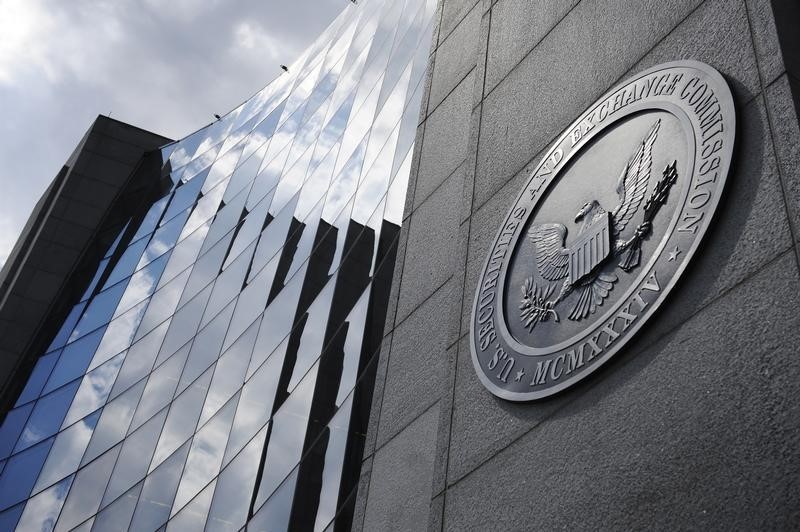By Sarah N. Lynch
(Reuters) - U.S. securities regulators took another step toward shedding more light on the over-the-counter derivatives market Wednesday, adopting a raft of measures to give them a direct window into the opaque market.
The Securities and Exchange Commission's rules lay out a regulatory framework for "swap data repositories" like those operated by the Depository Trust & Clearing Corp, a specialized warehouse that collects trillions of dollars worth of swaps trades, shares it with regulators, and disseminates aggregated data to the public.
The SEC's rules come more than four years after they were first required by the 2010 Dodd-Frank Wall Street reform law. That law requires direct oversight of the $692 trillion swaps market and calls for a variety of new rules to improve price transparency, reduce risks of defaults and hold banks accountable for misconduct.
"Regulators will rely on (swap data warehouses) for timely, accurate information to monitor concentrations of risk exposures and address potential market abuses," SEC Chair Mary Jo White said.
The Dodd-Frank law split up the responsibility for policing the swaps market between the SEC and the Commodity Futures Trading Commission, with the CFTC winning the lion's share.
The CFTC long ago adopted its own rules for swap data warehouses under its turf.
SEC officials said the new rules are similar to the CFTC's.
They will require data warehouses to register, establish governance standards and designate a chief compliance officer.
The package of rules would also require the reporting of data, including the public dissemination of aggregated volume and pricing figures.
But the SEC measures provoked sharp disagreements along party lines. Republicans lamented a provision that holds employees of swap data warehouses liable for lying to the chief compliance officer.
The new rule "creates heightened liability and uncertainty," said Republican SEC Commissioner Michael Piwowar.
Democrats, meanwhile, said the rules fell short because they lack elements such as "real-time" reporting and a definition of a "block trade," a large trade typically reported with a lag time so it does not tip off other traders.

For now, the SEC's rules require all swaps to be reported within 24 hours, until more study is done to refine the timing.
The SEC said it was still working to complete rules mandating the format that warehouses should use when reporting data so that it will be useful for regulators.
"We have a lot of work to do," said SEC Democratic Commissioner Kara Stein.